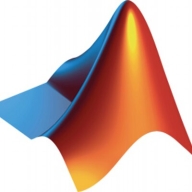

Find out what your peers are saying about Sonar, Veracode, Checkmarx and others in Static Application Security Testing (SAST).
| Product | Market Share (%) |
|---|---|
| Coverity Static | 6.0% |
| SonarQube Server (formerly SonarQube) | 19.7% |
| Checkmarx One | 10.0% |
| Other | 64.3% |
| Product | Market Share (%) |
|---|---|
| Polyspace Code Prover | 1.4% |
| SonarQube Server (formerly SonarQube) | 20.4% |
| Checkmarx One | 10.4% |
| Other | 67.80000000000001% |


| Company Size | Count |
|---|---|
| Small Business | 8 |
| Midsize Enterprise | 6 |
| Large Enterprise | 31 |
| Company Size | Count |
|---|---|
| Midsize Enterprise | 1 |
| Large Enterprise | 6 |
Coverity gives you the speed, ease of use, accuracy, industry standards compliance, and scalability that you need to develop high-quality, secure applications. Coverity identifies critical software quality defects and security vulnerabilities in code as it’s written, early in the development process, when it’s least costly and easiest to fix. With the Code Sight integrated development environment (IDE) plugin, developers get accurate analysis in seconds in their IDE as they code. Precise actionable remediation advice and context-specific eLearning help your developers understand how to fix their prioritized issues quickly, without having to become security experts.
Coverity seamlessly integrates automated security testing into your CI/CD pipelines and supports your existing development tools and workflows. Choose where and how to do your development: on-premises or in the cloud with the Polaris Software Integrity Platform (SaaS), a highly scalable, cloud-based application security platform. Coverity supports more than 20 languages and 200 frameworks and templates.
Polyspace Code Prover is a sound static analysis tool that proves the absence of overflow, divide-by-zero, out-of-bounds array access, and certain other run-time errors in C and C++ source code. It produces results without requiring program execution, code instrumentation, or test cases. Polyspace Code Prover uses semantic analysis and abstract interpretation based on formal methods to verify software interprocedural, control, and data flow behavior. You can use it on handwritten code, generated code, or a combination of the two. Each operation is color-coded to indicate whether it is free of run-time errors, proven to fail, unreachable, or unproven.
We monitor all Static Application Security Testing (SAST) reviews to prevent fraudulent reviews and keep review quality high. We do not post reviews by company employees or direct competitors. We validate each review for authenticity via cross-reference with LinkedIn, and personal follow-up with the reviewer when necessary.